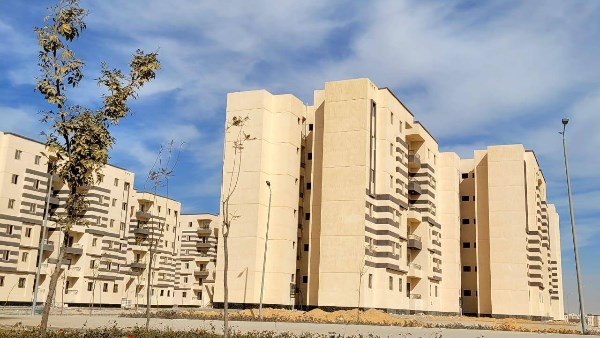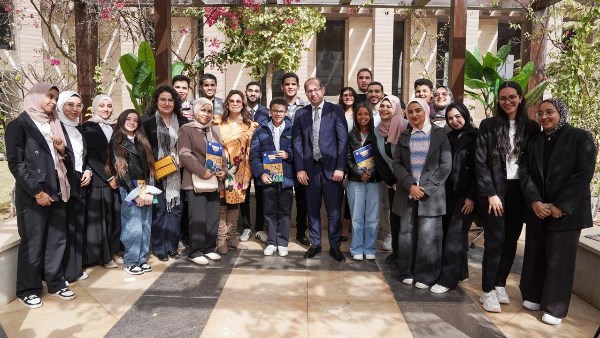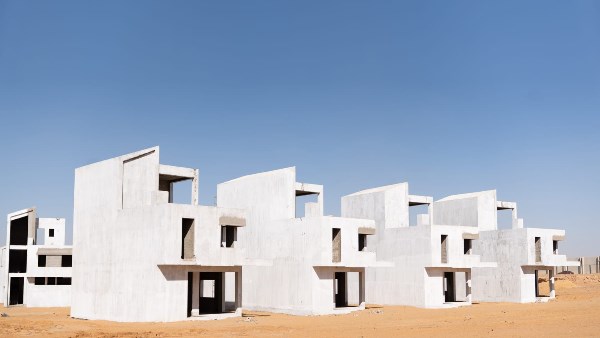
COP27 Presidency paves the way for more progress on sustainable, green and resilient transport

The COP27 Presidency of Egypt has identified transport as an issue of particular importance for the upcoming United Nations Climate Change Conference taking place from 6-18 November 2022 in Sharm el-Sheik, Egypt (known as COP27). The Egyptian presidency of the conference is including in its action agenda an entire afternoon on 17th November 2022 to convene stakeholders to discuss and make commitments to achieve equitable, healthy, green and resilient transport in Africa and the rest of the developing world.
Now is the time for action
"The focus of COP27 is on implementation; now is the time for action. We hope to see stakeholders come together and demonstrate genuine commitment to active mobility and electrification of buses across the world, and particularly for the Global South” said H.E. Ambassador Ayman Tharwat Amin, Deputy Director of the Department of Climate, Environment and Sustainable Development, Ministry of Foreign Affairs, Egypt.
In the lead up to transport discussions at COP27; on 7 September 2022 COP27 Presidency convened a meeting (moderated by UNEP and SLOCAT) at the Ministry of Foreign Affairs in Cairo, bringing together close to 100 stakeholders including governments, multilateral development banks, UN agencies, private sector, civil society and NGOs. The meeting sought to strengthen consensus on what specific COP27 transport-related outcomes could be achieved to support low-and middle-income countries, with a focus on Africa.
"The combination of decarbonized of public transport, walking and cycling holds the key to many of the solutions needed to achieve our goals through a just transition. It is inspiring to see such a wide range of stakeholders come together to discuss how COP27 can pave the way for accelerating action with Africa and the Global South in the lead.” said Ms. Maruxa Cardama, Secretary General, SLOCAT Partnership.
Areas explored included:
● Creating an overarching framework with SMART (Specific, Measurable, Achievable, Relevant, and Time-Bound) outcomes that identifies the gaps, and builds on previous initiatives, and feeds back into these efforts to ensure continuity, alignment and scaling up.
● Secure high-level commitment from interested Parties and non-party stakeholders.
● Identify relevant announcements under preparation by leading entities.
● Develop roadmaps for stakeholder engagement, including Parties.
● Develop funding and governance mechanisms, as required.
COP27 is a golden opportunity to make sure developing countries take centre stage and also to prioritise two critical solutions in the fight against climate change- active mobility and electrification” added Rob de Jong, Head-Sustainable Mobility Unit, UNEP.
This prioritisation and focus on transport are more critical than ever before; transport accounts for 15% of global greenhouse gas (GHG) emissions, and is the fastest growing source of emissions. According to the IPCC Climate Change 2022 Report for Policymakers, the global share of GHG emissions attributed to urban areas is increasing, from 62% in 2015 to about 67-72% in 2020. Applying the Avoid-Shift-Improve (ASI) framework through integrated, inter-modal and balanced approaches is critical to effectively enabling equitable, healthy, green and resilient transport pathways. The combination of public transport based on clean technologies and walking and cycling hold the key to many of the solutions needed to achieve our goals through a just transition. Still, these are under-prioritised aspects of the climate agenda, from a policy and funding perspective. All over the world, decades of car-centric cities and transport planning have had negative impacts on cities - from rocketing emissions, poor air quality and dangerous roads, to plans and policies that leave the poorest behind.
While the need to transform transport systems is universal, there is urgency in focusing on the Global South, where most of the vehicle growth is underway and projected to continue, and where the majority of urban dwellers use public or paratransit services and walk or cycle despite the lack of infrastructure for safe active mobility. Many cities in the Global South are already planning low-carbon public transport options, including electric buses. It is a matter of urgency to ensure that these investments scale up the use of clean technologies to not lock them into non-sustainable pathways. It is equally important to ensure that these public transport systems are integrated with active mobility interventions for safe walking and cycling.





-1120252475029447.jpg)















